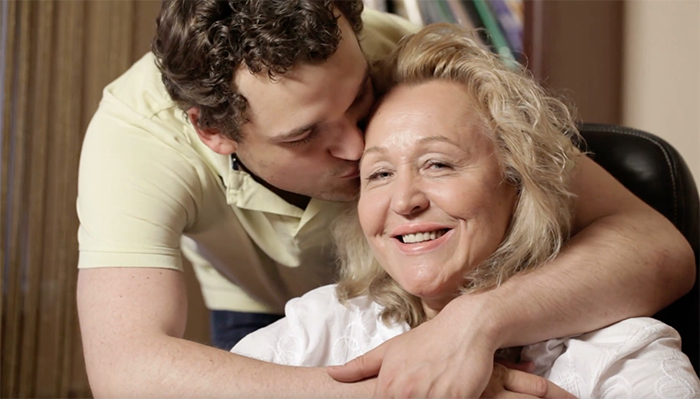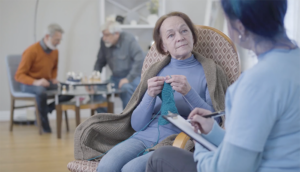PREMIER HOME CARE SERVICE IN NAPLES, FL
QUALITY CARE IS OUR COMMITMENT
Understanding Aphasia

Speaking to Someone with Aphasia: 5 Helpful Tips
Aphasia can make it difficult to communicate with someone in your care. Understand Aphasia better and how to engage those living with this disorder.
5 Helpful Tips to Use When Speaking to Someone with Aphasia
Nearly 180,000 Americans acquire Aphasia every year. It affects 1 in 250 people in the U.S.; however, many people have never even heard of it. Read on to find out more about Aphasia and how you can help loved ones who may have it.
What is Aphasia?
Aphasia is a neurological disorder that affects an individual’s ability to communicate. Some patients may have a severe inability to communicate, including difficulty speaking, understanding spoken language, and an inability to read or write. (source)
About 1 million Americans are affected by Aphasia. It is more common than muscular dystrophy, cerebral palsy and Parkinson’s Disease, yet most people have never heard of it.
What Aphasia is NOT?
Aphasia does not affect an individual’s intelligence or development. It is a language deficit. More mild cases of aphasia may mean an individual is unable to retrieve names of people and objects or has a hard time stringing simple sentences together.
What Causes Aphasia?
Aphasia is caused by injury to the brain such as a stroke. Brain injuries such as tumors, trauma and infections can also cause Aphasia. Aphasia is most common in older adults, but can occur at any age.
What’s the Difference Between Aphasia and Alzheimer’s?
Aphasia is often confused with Alzheimer’s. Both are a form of dementia.
Alzheimer’s is characterized by forgetfulness. Individuals with Alzheimer’s cannot remember certain people or events, but they don’t typically
have trouble finding the right words to say or difficulty understanding conversation. (source)
Individuals with Aphasia often have trouble understanding what is being said to them or how to reply. They may also have difficulty reading and writing. (source)

5 Helpful Tips When Speaking to Someone with Aphasia
|
1 |
Before diving into a conversation, make sure you have the individual’s full attention. |
|
2 |
Keep your voice at a normal level, unless they indicate otherwise. Do not shout at them. Unless they have a hearing impairment, raising your voice will not help them understand more quickly. |
|
3 |
Communicate clearly and directly. Ask them “yes” or “no” questions. Do not give them too many options. If giving instructions, break them down into simple steps. Speak simply, but do not talk down to them. |
|
4 |
Be patient when waiting for their response. They may take longer than you expect to reply. If they are having a hard time understanding, use hand gestures, pointing or drawings to help them communicate. |
|
5 |
Engage them in conversations and activities. Remember that Aphasia is a communication disorder and not a reflection of intelligence. Foster independence in them and avoid being overprotective. |
There are many types of Aphasia and they can range from mild to more severe. Some individuals with Aphasia can improve slowly over time. Understanding Aphasia and learning communication methods can help those with loved ones living with Aphasia.

Whether you are looking for a reliable nurse for different medical services, or a professional aide for personal care services, Gulfshore Home Care is here to help. Because every client’s needs and lifestyle are different, our in-home care team will provide services specifically based on your loved one’s condition and circumstances.

We are located in the areas of Naples, Bonita Springs, Estero, and Marco Island. Please do not hesitate to give us a call at 239-249-8318

With our home health care services you will be able to live a happy, safe, and independent life. We invite you read more about us. Every situation is unique, so to have all of your specific questions answered with personalized information from a friendly local home care expert, call 239-249-8318 now!
PERSONAL CARE
Our Certified Nursing Assistants and Home Health Aides are the best in the area. Call us today for a free consultation so we can develop a plan for your needs.
SKILLED NURSING
We have skilled nurses, whether you need 1 hour to 24 hour home health care; we will match you with a Highly Qualified caregiver to provide services for your needs.
COMPANIONS
If you are looking for a companion to provide company, we will ensure that you are satisfied by providing you with hand picked caregivers to meet your needs.



